Philippines and Kuwait sign agreement on workers' rights
- Published
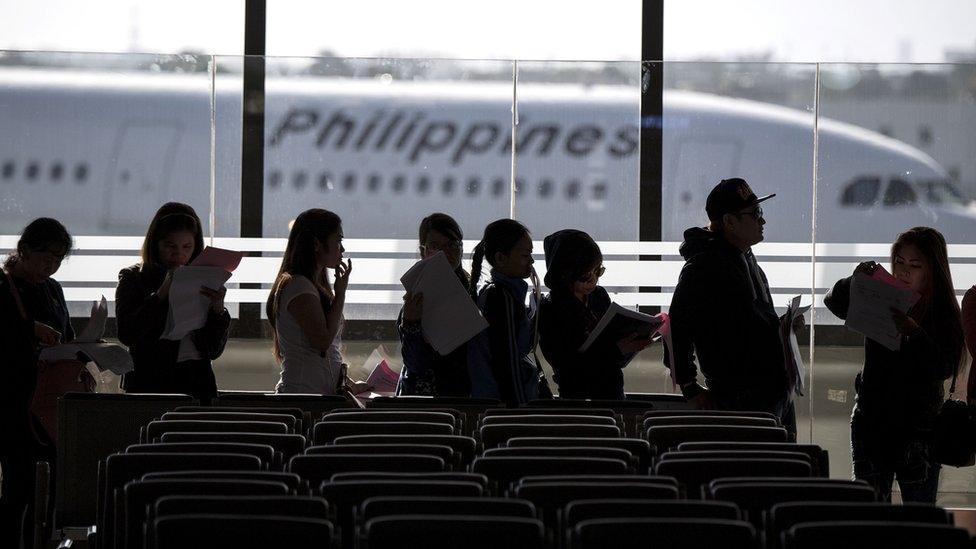
The Philippines banned workers from travelling to Kuwait amid allegations of abuse
A bitter dispute between Kuwait and the Philippines over the treatment of domestic workers is set to end with the signing of a new agreement.
Philippine President Rodrigo Duterte had banned workers travelling to Kuwait amid allegations of abuse.
Public outrage followed the murder of a young maid whose body was found in a Kuwaiti apartment freezer in February.
The resulting diplomatic row resulted in the expulsion of an ambassador and the arrest of embassy employees.
About 260,000 Philippine citizens live and work in Kuwait, most as domestic servants.
A copy of the agreement seen by AFP news agency reportedly includes the right for workers to keep their passports and mobile phones, which are routinely confiscated by employers in Kuwait and other Gulf states.
Workers would be guaranteed food, housing, clothing and health insurance - and employment contracts would be renewed only with approval from Philippine officials, AFP said.
Speaking after the signing of the new agreement on Friday, Philippine officials said a new ambassador would be appointed to Kuwait and would advise President Duterte to lift his ban on workers travelling to the country.
"I think the crisis is over. We will move on with the bilateral relations and we will resume normal ties with Kuwait," an official told AFP.
Millions of Filipina maids and other domestic workers travel abroad and send money home to their families. Moving abroad to work is so common that the government runs academies to train people in skills for foreign service industries.
Stories of abuse, however, remain common.
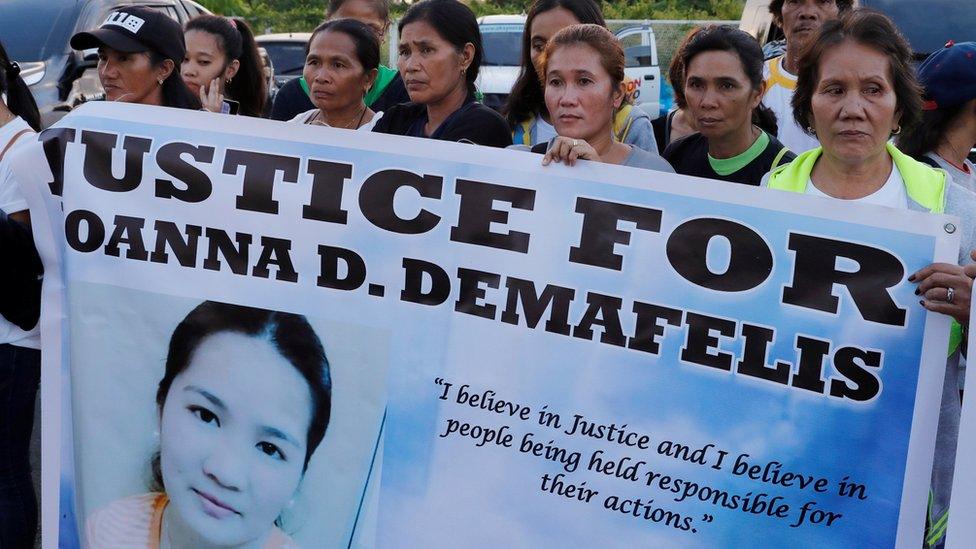
The death and apparent torture of 29-year-old Joanna Demafelis outraged many Filipinos
The death of Joanna Demafelis, a 29-year-old maid, was one cause of the diplomatic crisis.
She was found dead in a freezer in her employer's apartment in February, more than a year after she was reported missing, with signs of torture.
Her employers, a married couple, were found after an extensive search aided by Interpol.
Both have been sentenced to death in absentia in Kuwait, which has requested their extradition from Lebanon and Syria where they are being separately detained.
The spat between the two nations reached new highs in April, when Kuwait expelled the Philippine ambassador over video showing embassy staff "rescuing" workers allegedly abused by their employers.
Kuwait called the actions "smuggling" and a violation of its laws, and arrested employees of the Philippine embassy. It said it would "chase down" those responsible and put them on trial.
It also recalled its own ambassador to the Philippines - which the Philippines only discovered when it summoned him to protest against the treatment of its citizens in Kuwait.
- Published11 December 2017
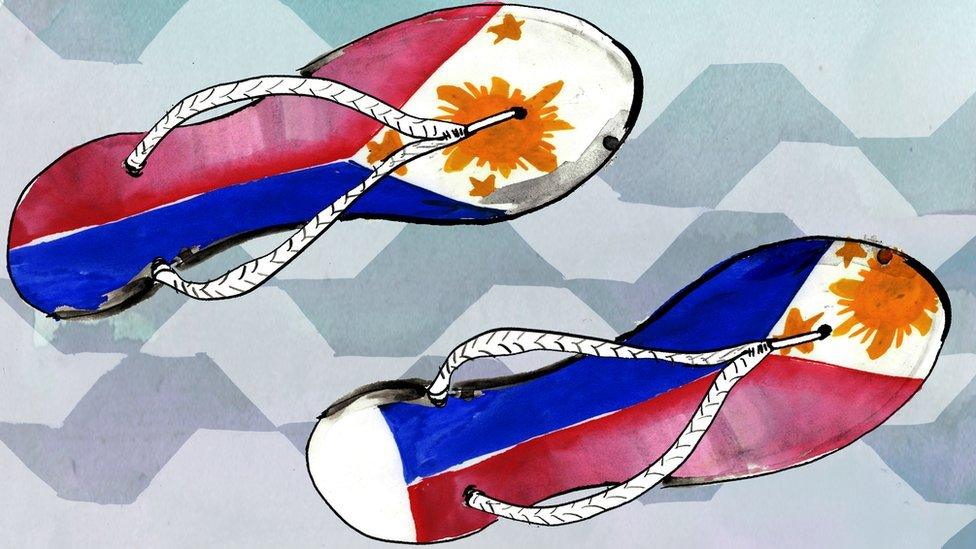
- Published24 February 2018
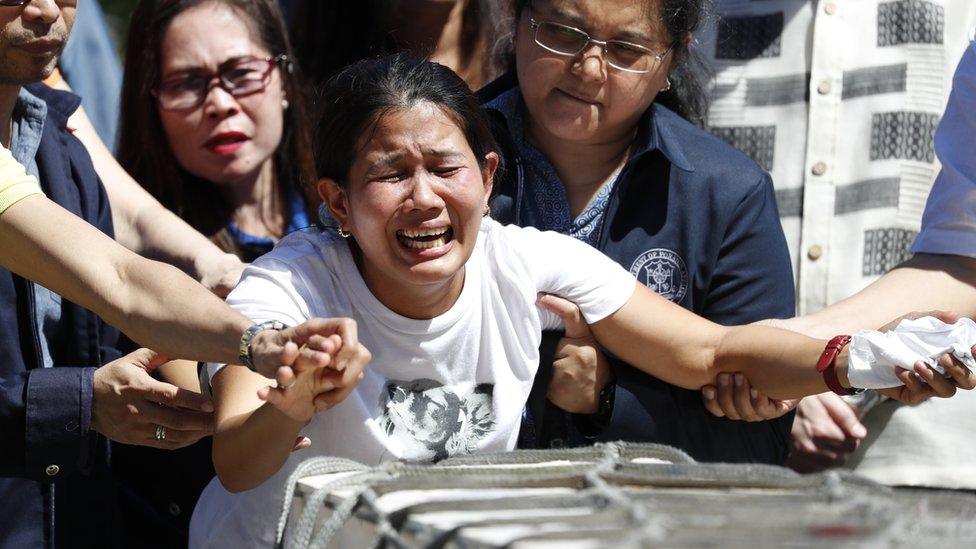
- Published1 April 2018
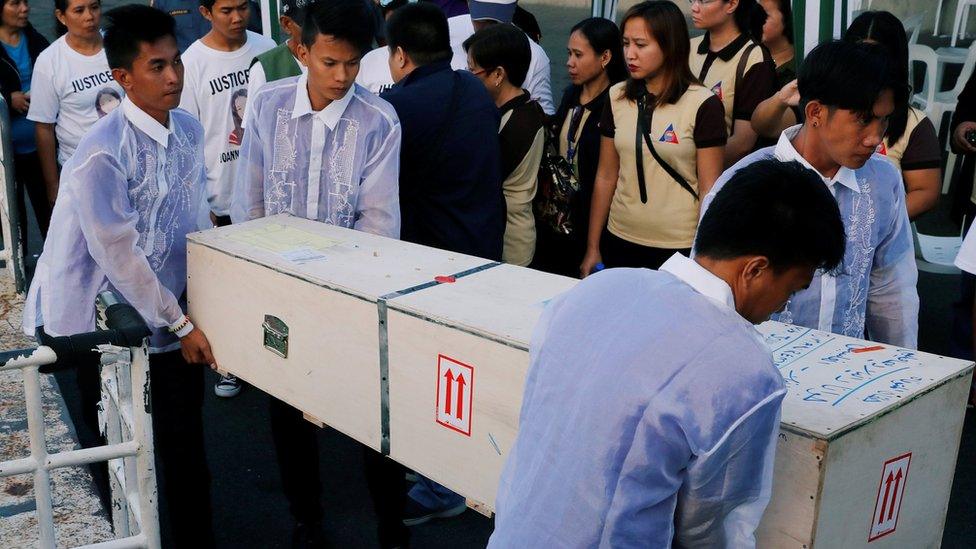
- Published26 April 2018
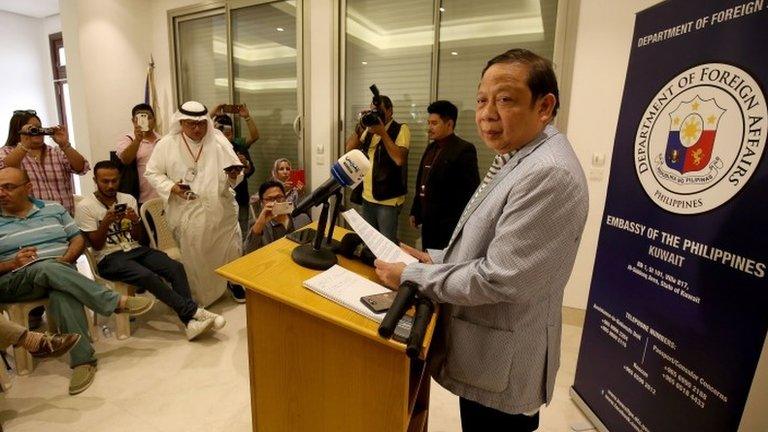
- Published19 January 2018
